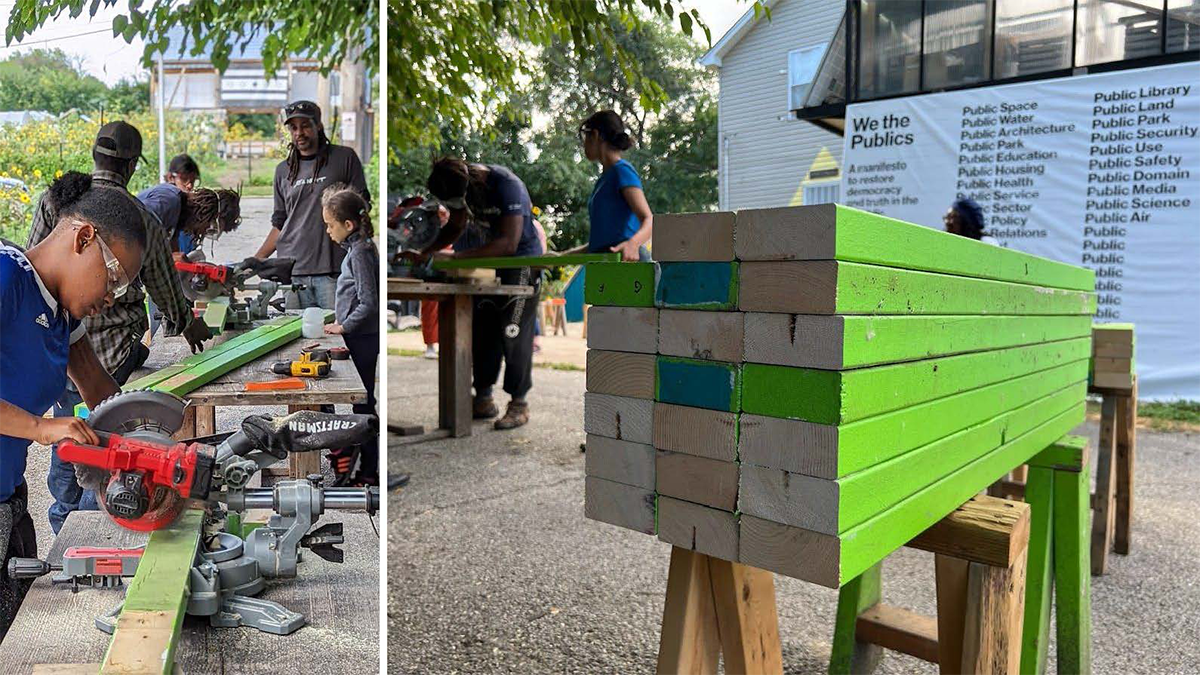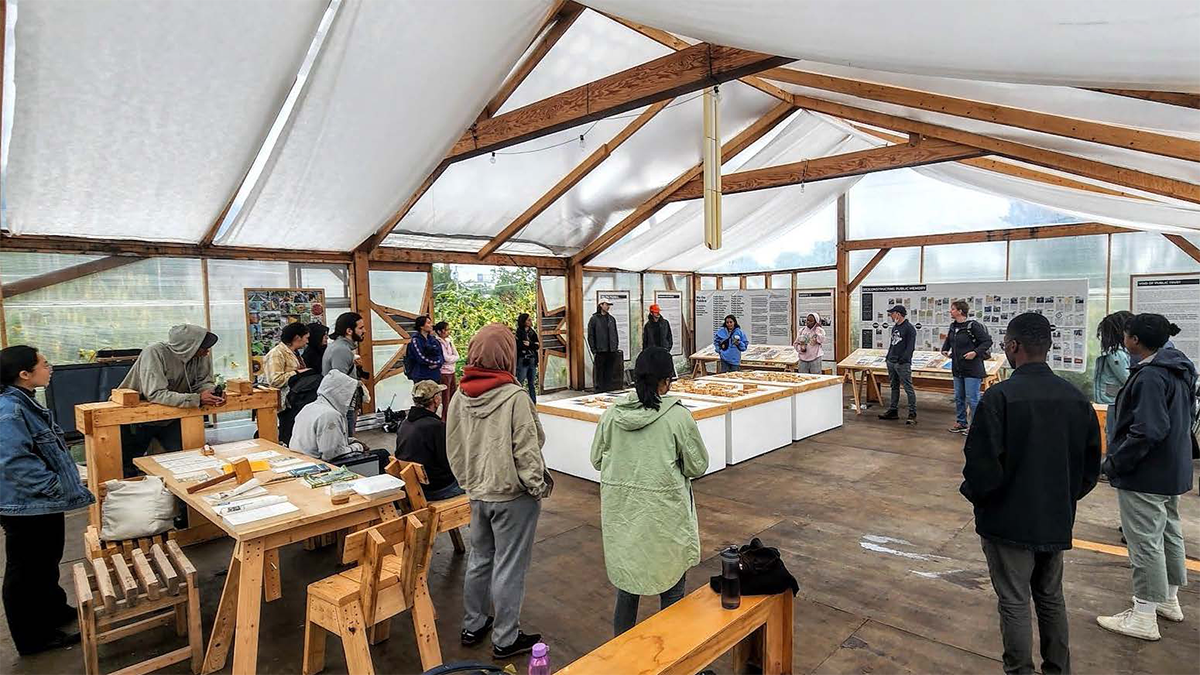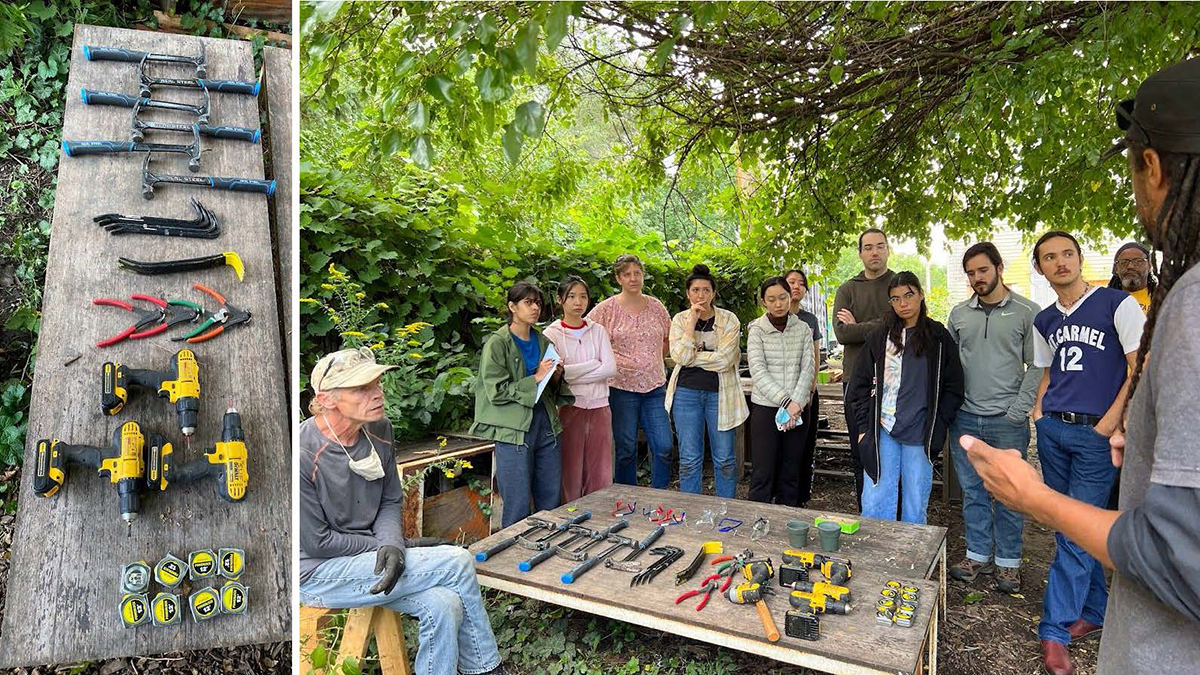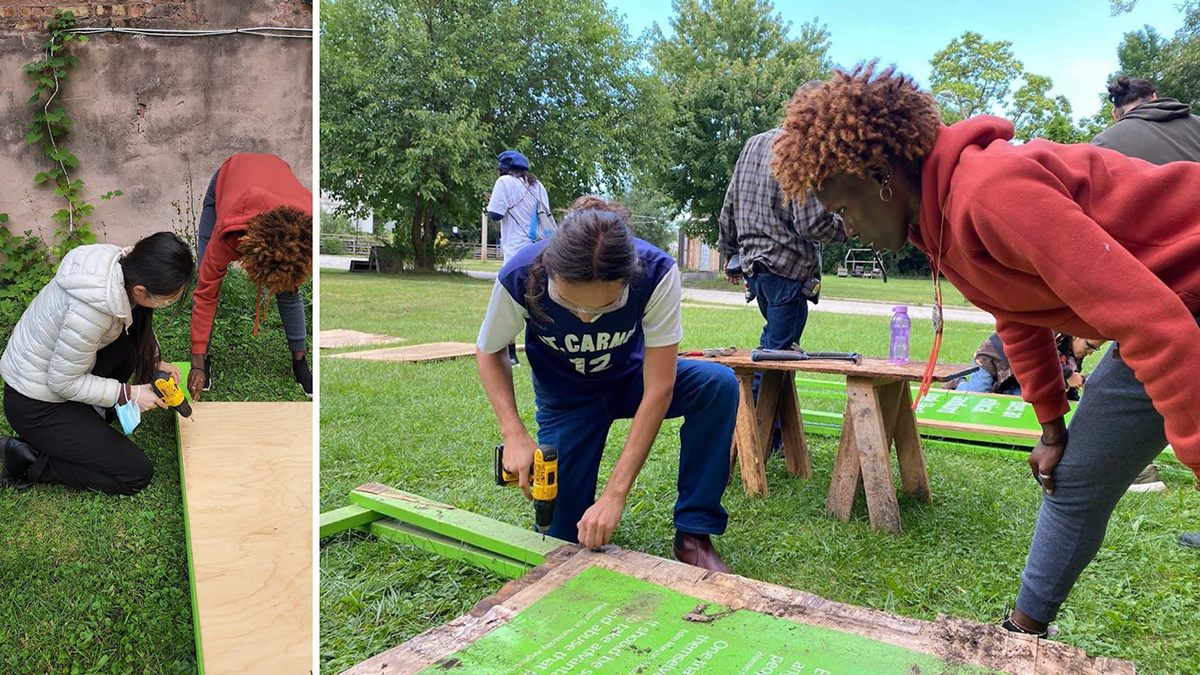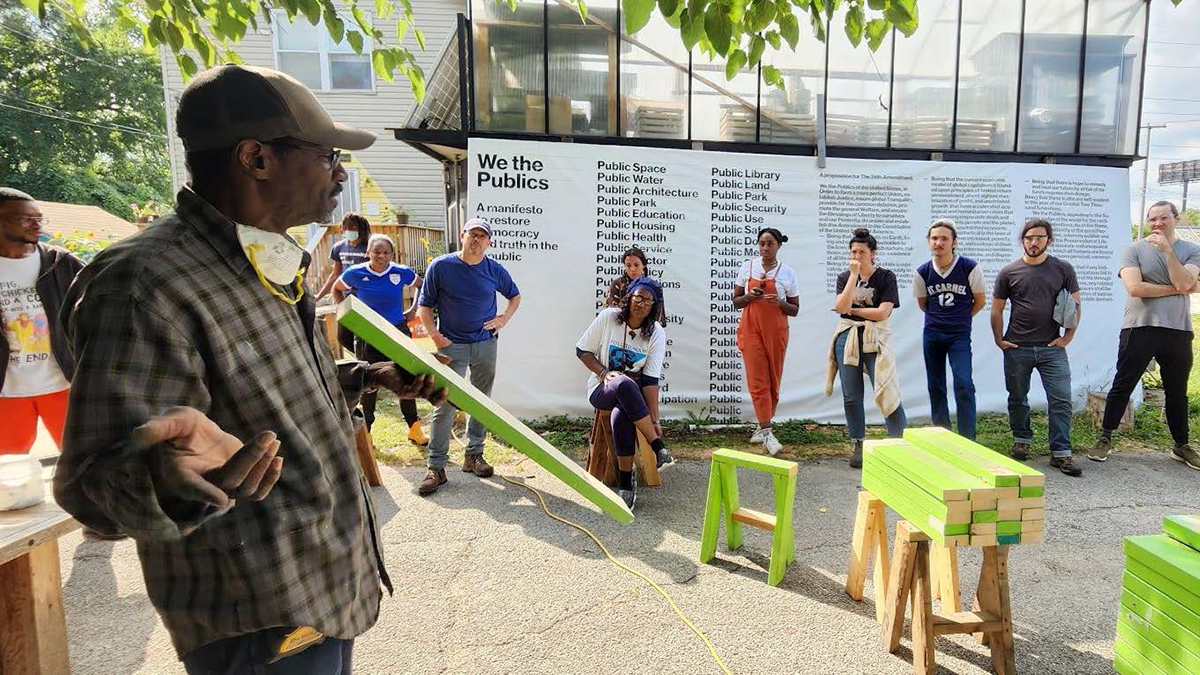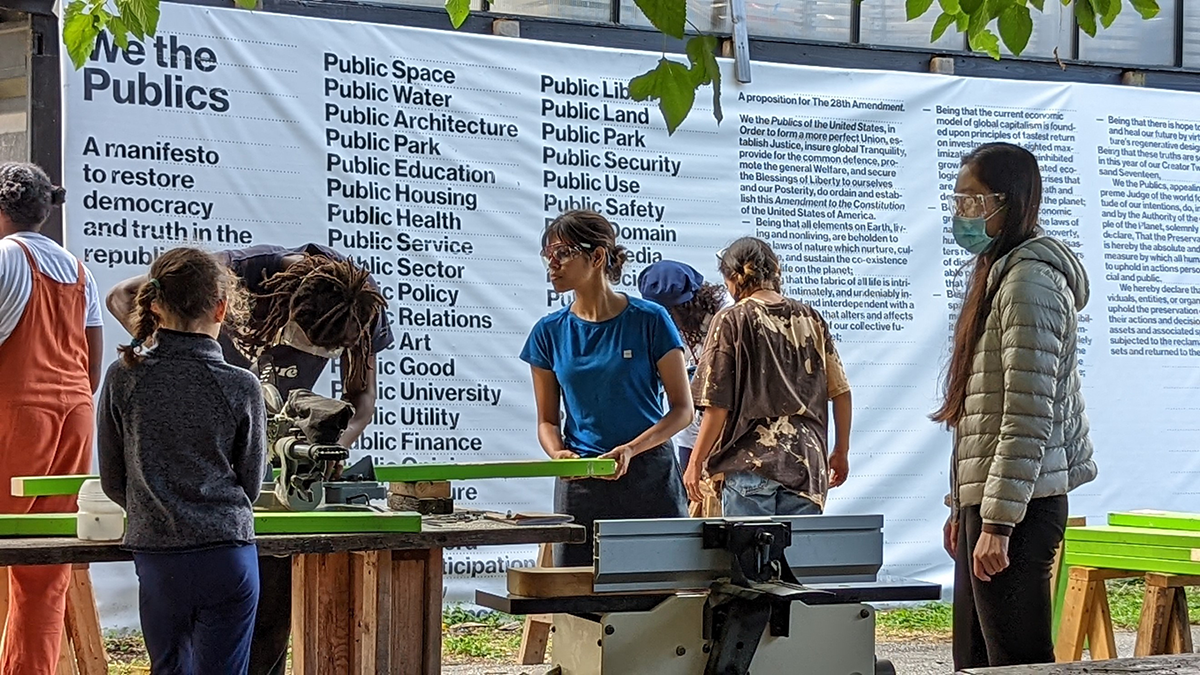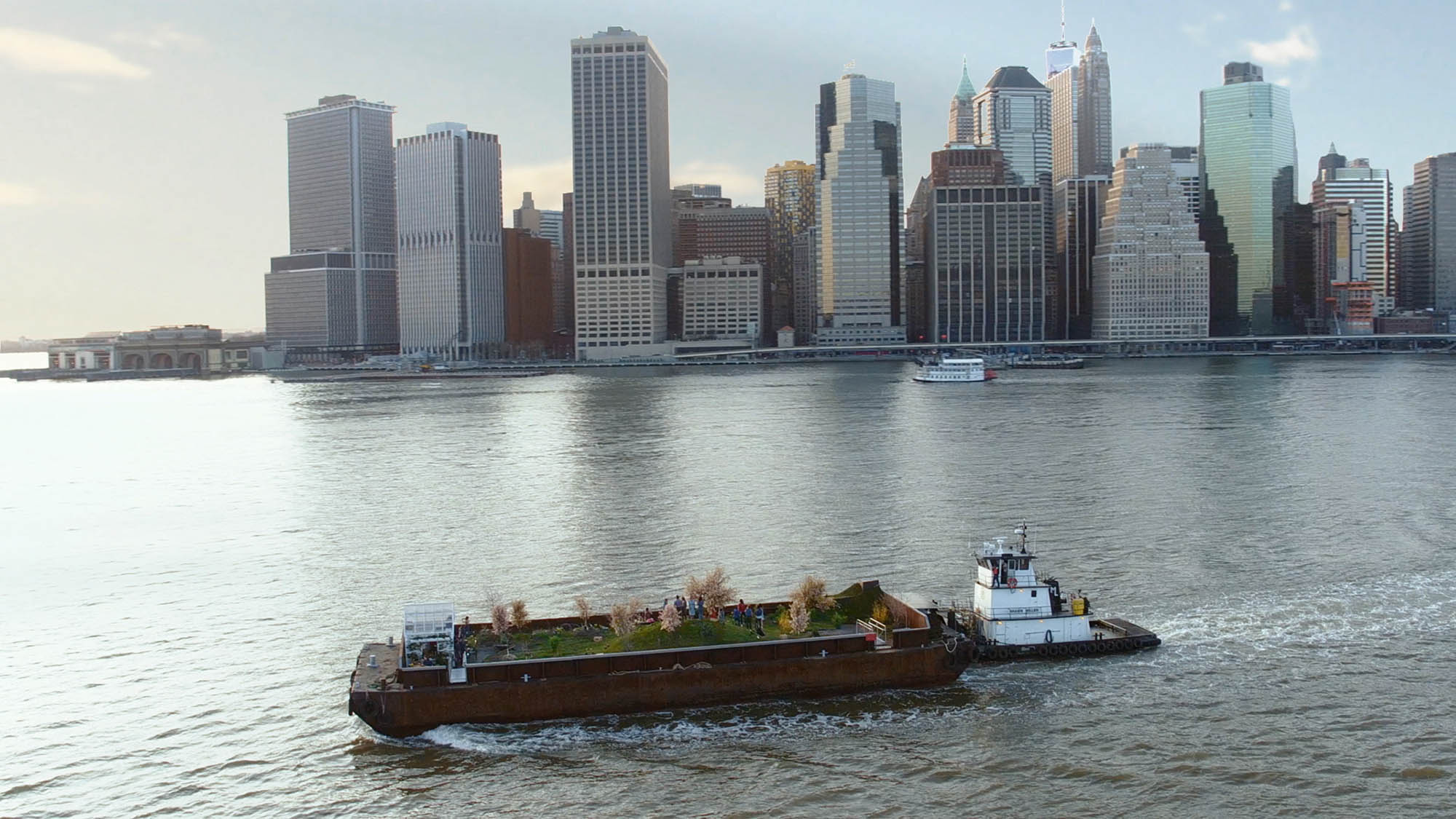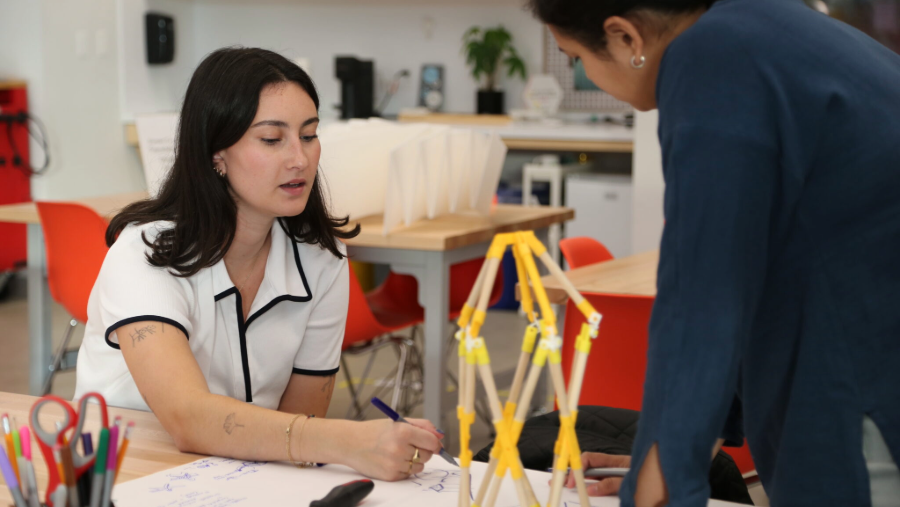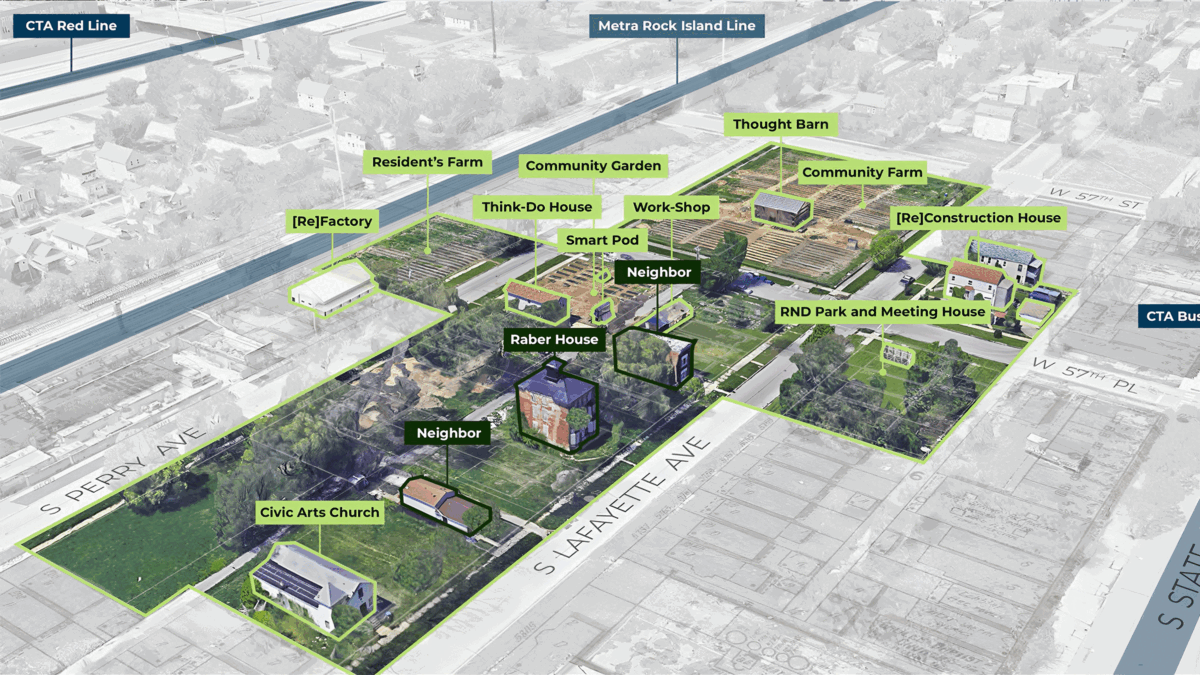
When students first arrived in Chicago for an immersive, four-day learning experience hosted by the Sweet Water Foundation (SWF), cofounder and Executive Director Emmanuel Pratt (B.Arch. ’99) challenged the group to immediately unpack their perspectives through their first task: shoveling soil into containers. It was perhaps not quite the transformative community-building work they had been anticipating until he helped them make the connections across scales. “How many seeds can you plant in a pot?” asked Pratt. “How many households now are relying on this garden bed because they just closed the Whole Foods they put some $20 million into over the past six years for proposed development? And now there’s a domino effect of scarcity due to the war in Ukraine and COVID-19, which affects our agricultural industry.” It was a shift in viewpoint and, ultimately, a perfect place to begin.
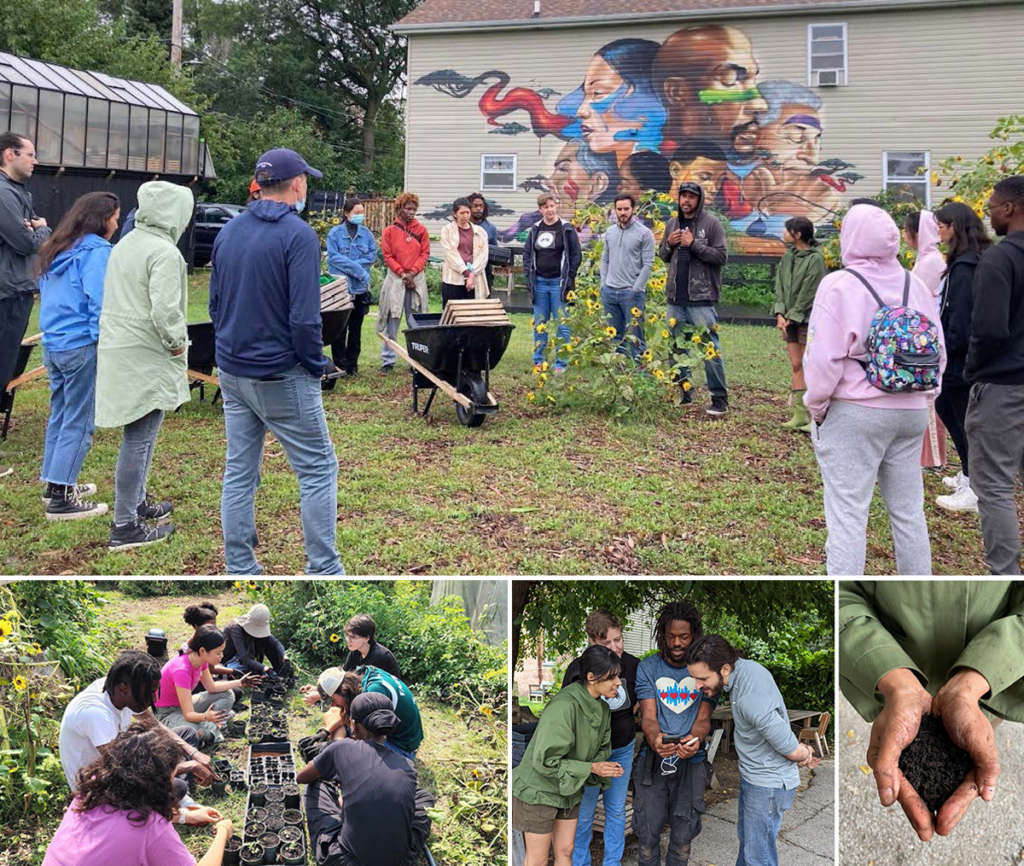
The partnership between Cornell AAP and the Sweet Water Foundation serves as a cornerstone for this fall’s Inclusive Urban Development course taught by CRP Lecturer Mitch Glass and cosponsored by the Cornell Mui Ho Center for Cities and the Department of City and Regional Planning. As part of the class, 10 planning, architecture, and landscape architecture students traveled to Chicago in September for a “dis-orientation + re-orientation” session at the foundation’s four-city-block campus. Known as The Commonwealth, it is situated on the city’s South Side at the intersection of Englewood and Washington Park, two communities that have endured decades of disinvestment. The space now hosts a vibrant urban farm planted across formerly vacant lots, and foreclosed and abandoned structures have been turned into meeting, workshop, and educational spaces through the collaborative work of the foundation and local residents.
This time in the field served as a dynamic, hands-on introduction to SWF’s practice of Regenerative Neighborhood Development. Students worked alongside the foundation’s core team and community members — in the gardens, on construction projects using reclaimed wooden pallets, and during meetings and meal prep. Throughout, they practiced deep listening, recognizing the importance of embodied knowledge in communities and reaching a greater understanding of how urban form is often impacted by long histories of systemic racism and redlining.
“It’s about the multiplicities of reconnection in places that have been historically and systematically disconnected,” Pratt emphasized as he walked through Sweet Water’s evolution and successes that largely began in schools slated to be closed due to lack of funding. “We would start off in a school by asking, ‘How do we make education relevant in neighborhoods that have been historically overlooked?’ Everybody eats, and we can talk about every form of education from there — math, science, biology, hydrology, chemistry, designing and building garden beds or aquaponics. Then, you move outside and design your habitats. So, we started first and foremost with education, and then began to actually rethink pedagogy altogether.”
SWF continues that work today, welcoming students of all ages and skill sets. Jia Lok Pratt ’97, Sweet Water’s Chief Operating Officer, explained that “what has emerged over the last five years is what we now call The Communiversity, because when it comes to education and community engagement, we don’t separate these things. This is just our practice. It’s how we function and live in this community every day. We encourage an intergenerational and transdisciplinary focus in the way we work because we know that these are the connections that don’t currently exist in the world, but that need to exist.” This experiential, inclusive approach is especially impactful when university students visit, she notes, because it helps them to “adjust their lens and not take what they’re learning in an institutional framework as the absolute, wholehearted truth.”
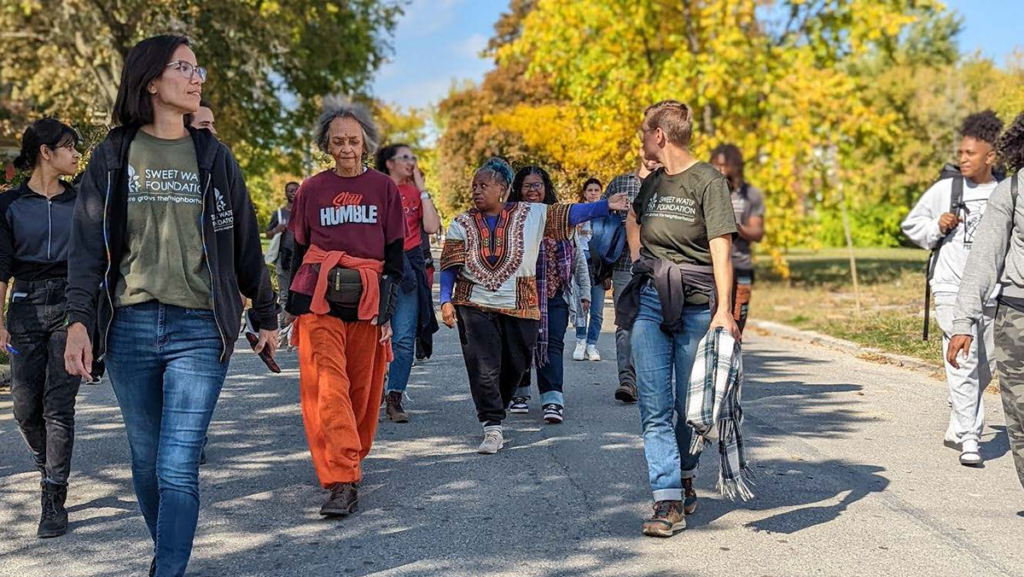
Following their trip to Chicago, the students gathered again with Pratt and SWF staff in Detroit for an intensive three-day collaboration to develop listening, reflecting, translating, and visioning frameworks for a community-driven project in support of several of SWF’s Values-Based Partners — organizations located across the country that share the foundation’s approach to rebuilding communities through spaces and places. At the first group meeting held in the Birwood home where she grew up, Detroit educator and community activist Kim Sherobbi challenged the group, cautioning that “the work of creating what you want to see is not short work — it’s a lifestyle. It’s a way of living, thinking, and being … [and] it’s important for people to understand that there are a group of people who believe that they can actually find the wherewithal within themselves to create a new system and a new way of living.”
“These activities promoted radical paradigm shifts in students’ understanding of people and place, prompting a re-evaluation of the meaning of conventional planning and design praxis,” noted Glass. “It’s a game changer for students to think in new ways about what it means to practice community engagement. In this case we were invited in by Sweet Water and their Values-Based Partners to listen, reflect, and collaborate with local organizations and people doing transformational work on the ground in Chicago and Detroit. This has been an extraordinary learning experience.”
As part of frequent reflections both written and voiced by participants — an integral aspect of SWF’s pedagogical approach — Swathi Suvarna (M.R.P. ’23) meditated on her experience in Chicago. “A huge shift for me was the concept of ‘small is beautiful’,” she wrote. “I shifted careers from architecture to planning for the exact opposite reason — feeling inadequate and frustrated that I wasn’t a part of larger changes. Spending time at SWF made me rethink that perspective. I learned that meaningful change can and should start at small levels, which can later be scaled up if need be.”
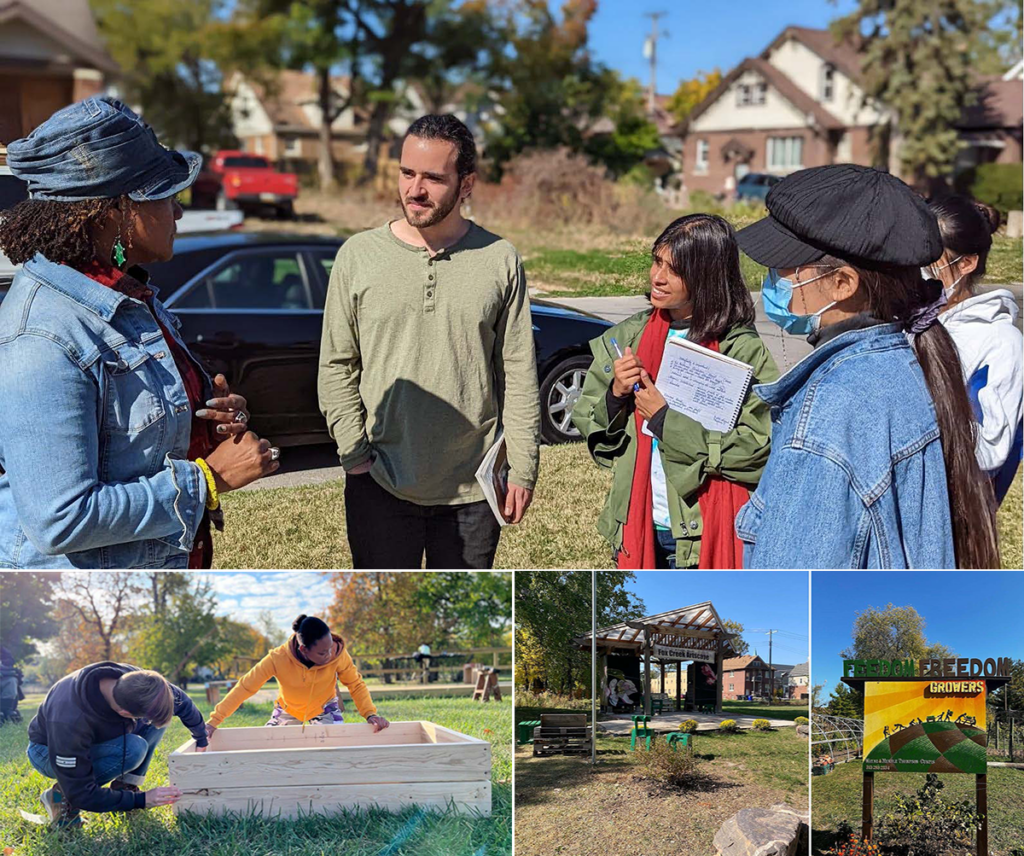
Zachary Sherrod (M.S. AAD ’23) found his experiences in Detroit with Feedom Freedom Growers, an organization focused on building community through food cultivation and education, similarly clarifying. “Their work helped me realize that the most valuable resource in a city is not its corporations or its institutions, but instead the citizens who choose to give their all to the long-term health and well-being of their communities,” shared Sherrod. “Moving forward, I recognize that it is both an imperative and opportunity to celebrate and elevate the work of these people because they are the real life force of the places that architects and planners claim to bring to life.”
The growing partnership between Cornell AAP and the Sweet Water Foundation hinges on the belief that introducing tomorrow’s planners, urbanists, and designers to vibrant examples of existing work on the ground will inform their approach to practice and ultimately transform their disciplines. Before the fall workshop, AAP students Jada Cannon (M.Arch. ’24) and Aashka Patel (M.R.P. ’23) were already engaged with SWF at The Commonwealth as Summer 2022 Urban Ecology Global Fellows. Along with graduate and Ph.D. students from other universities, Cannon and Patel undertook a ten-week intensive program that immersed them in the philosophy, community, and collaborative labor that goes into Sweet Water’s ongoing work.
“There’s so much intention and thought and energy being put into this so that it can be transformative,” noted Lok Pratt.
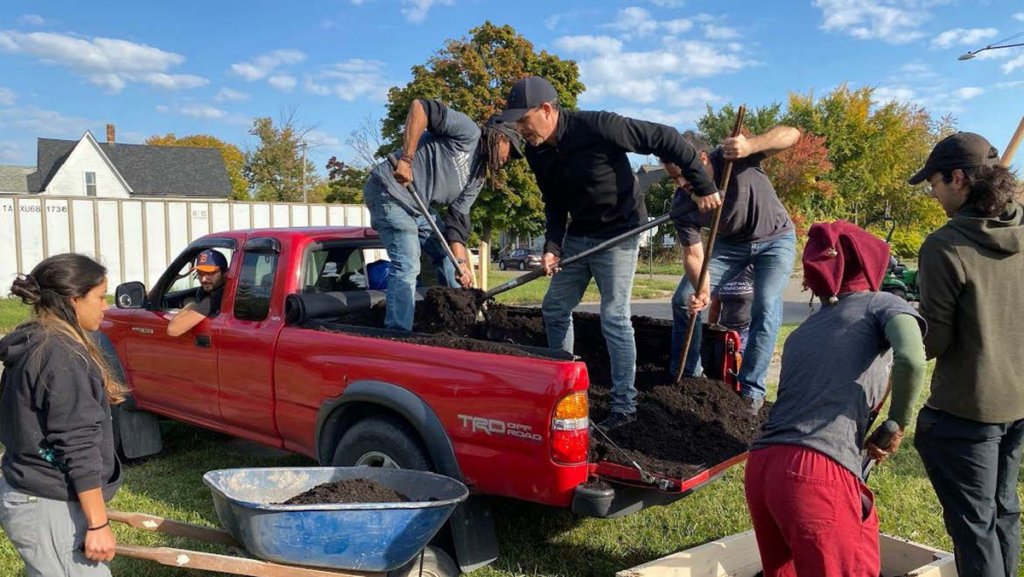
Victoria A. Beard, Professor and Director of the Cornell Mui Ho Center for Cities, noted that “the course and our partnership with SWF perfectly complements the critical lens we hope all AAP students will develop during their time at Cornell. It is impossible for students to develop this lens with exposure to only research and theory, as essential as these components are to the learning process. Classes like this one are particularly important given the applied nature of our work. Students need guided and meaningful experiences outside the classroom, employing all of their senses to the fullest. They need to spend substantial time in complex environments and critically reflect on those experiences to appreciate the multi-faceted, multidimensional, and dynamic nature of the places and the challenges they aspire to affect positively as planners, urban designers, and architects. I am grateful this partnership affords our students the opportunity to engage directly with thought leaders in our field that are living this work, like Emmanuel and Jia, community members, and other activists and change agents they work with.”
“This partnership is an extremely unique opportunity,” Pratt emphasized. “It sets a precedent, I think, for an emerging paradigm. This is not just a class visit. This is life happening — a very serious future, not just a hypothetical imaginary.”
